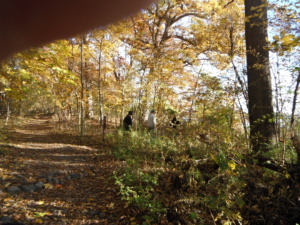We are in the midst of the Digital Revolution, a revolution that is forever changing civilization as did the Industrial Revolution that preceded it. It has affected and continues to affect in ever changing ways virtually everything we do, including how we spend our leisure time, interact with others, conduct business, research information and even conduct warfare.
Never before has it been possible to communicate with so many in such a short amount of time. Never before has it been possible to access a virtually limitless store of knowledge almost instantaneously. We have grown accustomed to, nay, spoiled by such capabilities that computers and the internet provide, to the extent that a few seconds’ delay in the rendering of a page in a browser is cause for consternation.
Part of this revolution is a global initiative to digitize any and all information and in any form it may take, whether in the written word, recorded sound or visual image. Books, manuscripts, scrolls, theses, articles, maps, pictures, sculptures, video, motion pictures… virtually anything and everything is being digitized today. The aim is to preserve and to provide readily available access to digital versions of such works, access that would otherwise have been much more difficult to obtain at the very least. In the past, one might even have to travel halfway across the world to the source of knowledge in order to obtain it, as with an archaeological site or even today, the Vatican archives.
One might think that such a digitization and preservation initiative is a good thing, and one would be right in thinking so. Surely, anything that makes such vast knowledge available to everyone is a boon to civilization. The advantages of digitization allow for preservation of delicate documents, enable us to kill fewer trees and allow information repositories such as libraries to make available a greater wealth of knowledge with much less overhead. However… there is a downside to this that I can see.
In the fall of 2013 when Hurricane Sandy rendered homes without power for weeks on end, it was so very obvious to me as a manager of information technology at a public library how much people depended on connectivity, not just for their entertainment, but for their interaction with others as well. Without electricity, there could no connectivity, no streaming video, no quick and easy research for a student’s homework, no email from relatives and friends and no way to recharge cellphones even if cellular service was available. People flocked in droves to the library where we made available every surge suppressor and power strip so that we could accommodate everyone who needed to recharge their mobile devices. For those of you who may be aware of network limitations, I even had to adjust the lease times of addresses assigned to mobile devices connected to our wireless network so as to accommodate as many connected devices as possible.
That experience drove the point home for me (in more ways than one, for I too found the library to be a digital refuge or oasis at that time): if we were to experience a cataclysmic event, something that would cripple our power grid and render us without power for years let’s say, what would we do? Imagine not being able to go to a library to recharge your devices. Imagine not being able to connect to anything even if you could recharge your devices through solar power or other means. Imagine a world with all the information safely digitized and preserved in underground datacenters, with no means to access that information. Imagine no one remembering that such information exists, let alone how to access it. No one passing knowledge on through oral tradition, and worse yet, no one in our technologically advanced society possessing the skills that primitive humans commanded thousands of years ago when it came to something as innate as cultivation or hunting and gathering. In such an apocalyptic scenario, we would devolve into a period far darker than the Dark Ages. And where would our advanced knowledge be? Underneath a mountain somewhere, perhaps? Could such a scenario have occurred in the past? Could we have been reinventing the wheel these past millennia?
I realize that I paint a very bleak scenario, but it is one that we should consider. After all, we look to the stars and other planets such as Mars for possible future colonization. It is for that same underlying reason–risk management–that we should consider a knowledge preservation alternative that is far different from what we are doing in our current preservation efforts. Such preservation of knowledge must be something that is accessible via low tech means, and it must be something that can be easily discerned, that is, accessible to anyone who is literate. Stone tablets would be a solution were it not for the fact that they are hardly capacious in the amount of data they can hold. Indeed, were it not for such stone inscriptions and some miraculously well preserved scrolls, what knowledge from the ancient past would we have today?
And so I make the modest proposal that we should pursue development of an alternative and viable solution to our present methods of information preservation, one that would be resilient, accessible to as many people as possible and without reliance on our current infrastructure. Is such a thing possible? We need to think out of the box for such a solution. At the very least, I believe we should consider the need for it and at least strive for something approaching it lest H.G. Wells’s words from The Time Machine become prophetic…
I grieved to think how brief the dream of the human intellect had been. It had committed suicide. It had set itself steadfastly towards comfort and ease, a balanced society with security and permanency as its watchword, it had attained its hopes--to come to this at last.
(originally published on LinkedIn by yours truly, 8 June 2014, available here)
